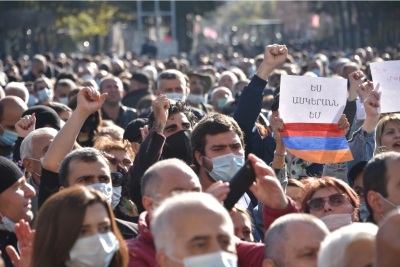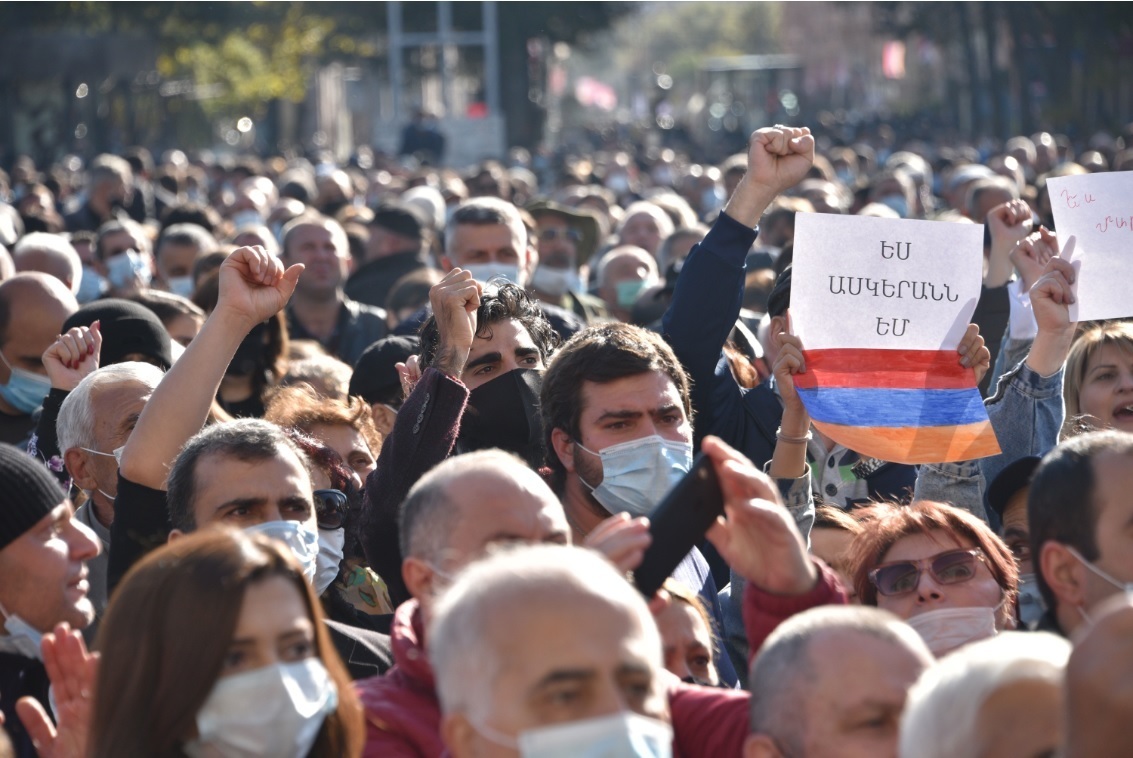
In 301 A.D., Armenia became the first country in the world to adopt Christianity as its state religion. Now, more than 1,700 years later, Armenian Christians are facing a religious and cultural genocide — for the second time in a century.
A recent report issued by the former chief prosecutor of the International Criminal Court in The Hague urgently warned that neighboring Azerbaijan’s blockade of the only road connecting Armenia to the Nagorno-Karabakh region is preventing desperately needed food, medical supplies and other essentials from reaching the 120,000 people, mostly Christians, who live there.
“Starvation is the invisible genocide weapon,” the report states. “Without immediate dramatic change, this group of Armenians will be destroyed in a few weeks.” The report goes on to say that there is a “reasonable basis to believe that genocide is being committed against Armenians.”
This group of Christians is not months or years, but mere weeks away from extermination. The situation could not be more urgent, and both U.S. and international government officials must pressure Azerbaijan to end the blockade immediately so these much-needed supplies can reach Nagorno-Karabakh. This genocide must not be allowed to happen in plain view on our collective watch.
Like all ethnic conflicts, the history of the Nagorno-Karabakh area is complicated. Both Armenia and Azerbaijan claimed the region, sparking a land dispute that led to the first Nagorno-Karabakh war in 1994. Armenia gained primary control of the territory in the end, but tensions flared again in 2020 when Azerbaijan launched a war of choice to retake land. Russia brokered a peace deal, with Azerbaijan gaining control of large areas of the region. Armenia is now connected to Nagorno-Karabakh via a small strip of land called the Lachin corridor. But Azerbaijan is blocking access to this strip, seeking a final solution.
A line of 19 trucks and 360 tons of food has been parked for two weeks waiting for permission to cross the Lachin corridor. Natural gas has been cut off since March and other energy supplies remain spotty at best. Families have been separated and surgeries canceled.
Genocide has been defined as the killing of a people not for what they have done but because of who they are. What we are witnessing in this region is more than a mere land dispute. Muslim-majority Azerbaijan’s aggression against Christian-majority Armenia is distinctly religious in nature, and the ongoing blockade is only the most recent example of Azerbaijan attempting to erase Armenia’s cultural and religious heritage.
I recently returned from a fact-finding trip to Armenia as part of the Philos Project, an organization devoted to protecting the rights of Christians and religious minorities in the Near East. Former U.S. Senator Sam Brownback, who also attended the trip, rightly observed, “Azerbaijan, with Turkey’s backing, is really slowly strangling Nagorno-Karabakh. They’re working to make it unlivable so that the region’s Armenian-Christian population is forced to leave, that’s what’s happening on the ground.”
Azerbaijan has analarming record of state-sponsored erasure of undesirable cultural traditions. Between 1997 and 2006, Azerbaijan’s government destroyed all 28,000 medieval Armenian religious monuments in the Armenian territory of Nakhichevan, including churches and tombstones. As recently as a few years ago, Armenian cemeteries were still being demolished. In 2020 Azerbaijani military forces blocked pilgrims from the Armenian Apostolic Church from accessing Sunday worship services at a monastery.
Armenian Christians have faced eradication before. Between 1915 and 1917, up to 1.5 million Armenians died at the hands of Ottoman Empire authorities. The United States has recognized the killings as genocide, but Turkey has repeatedly denounced the characterization.
Fortunately, there is still time to prevent Armenia’s genocidal history from repeating itself. A former part of the Soviet bloc, the Armenian government has slowly been shifting relations away from Russia and toward the West. Surrounded by Iran, Turkey, Georgia and Azerbaijan, Armenia is one of the few majority-Christian nations in this area of the world. This represents an opportunity to further strengthen ties and improve relations between the U.S. and the West and democratic Armenia.
Former Sen. Brownback has called for Congress to pass a Nagorno-Karabakh Human Rights Act to establish basic security guarantees for the population. This is not an unreasonable request. America has historically championed these kinds of protections to restrain injustice. But this is only one necessary step among many that must be made. In addition to demanding an immediate end to the blockade, we should reinstate previously used sanctions to hold the Azerbaijani government accountable for the destruction of Armenian heritage sites.
We are operating on a timeclock of mere weeks. If we don’t act swiftly, we will run out of time. Armenia’s beleaguered believers cannot afford for us to delay.
Dr. David Curry is President and CEO of Global Christian Relief (GCR), America’s leading watchdog organization focused on the plight of persecuted Christians worldwide. In addition to equipping the Western church to advocate and pray for the persecuted, GCR works in the most restrictive countries to protect and encourage Christians threatened by faith-based discrimination and violence.
Free Religious Freedom Updates
Join thousands of others to get the FREEDOM POST newsletter for free, sent twice a week from The Christian Post.




























![[Video] More – Aghogho » GospelHotspot](https://gospelhotspot.net/wp-content/uploads/2024/04/More-Aghogho.jpeg)
















